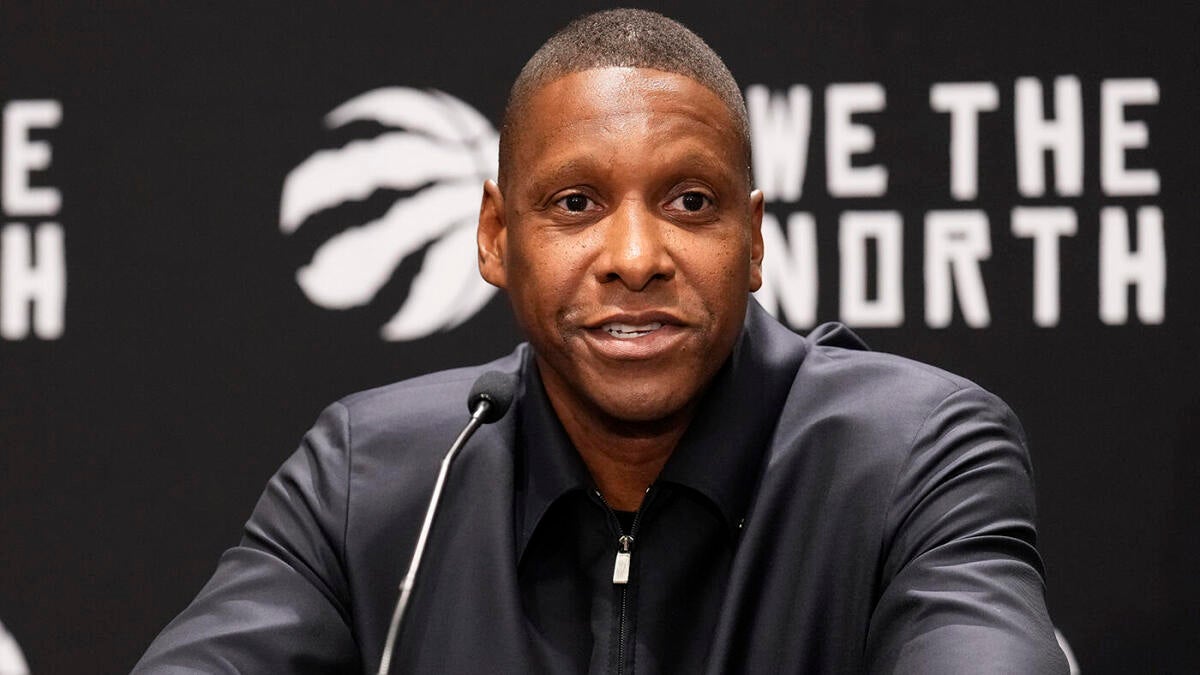The recent dismissal of Masai Ujiri as vice chairman and president of the Toronto Raptors has sent shockwaves across the NBA community, marking the end of an era for the franchise that he notably transformed. Ujiri’s departure, announced just one day after the conclusion of the 2025 NBA Draft, has sparked widespread speculation and debate about the factors behind his ouster, its implications for the Raptors, and the broader context of leadership dynamics within professional sports management.
A Legacy Built on Transformation and Triumph
Masai Ujiri’s tenure with the Raptors spanned over a decade, during which he completely reshaped the organization’s basketball operations and contributed significantly to its rise as a competitive force in the NBA. Prior to his leadership, the Raptors were often perceived as a middling franchise with limited playoff success. Ujiri’s strategic vision culminated in Toronto’s first-ever NBA championship in 2019, a landmark achievement that placed the Raptors firmly on the global basketball map.
Under his guidance, the franchise not only won titles but also quadrupled in value, evidencing Ujiri’s effectiveness not just in assembling talent but also in enhancing the Raptors’ brand and business stature. His knack for talent acquisition and drafting was evident in the recent selection of Collin Murray-Boyles in the 2025 NBA Draft, demonstrating his ongoing commitment to sustaining competitive excellence. Ujiri’s ability to build a championship-caliber team from a franchise that had previously struggled to make significant playoff runs was a testament to his leadership and vision.
The Unexpected Departure: Timing and Context
The timing of Ujiri’s departure is striking, as it came immediately after the 2025 NBA Draft, a pivotal moment for team-building strategy. Reports indicate that Ujiri knew about his impending exit well in advance, leading the draft process despite knowing this would be his final act with the team. This decision by Maple Leaf Sports & Entertainment (MLSE), the Raptors’ ownership group, reflects a complex interplay of internal dynamics.
Several factors are speculated to have contributed to the abrupt separation:
– Organizational Restructuring and Leadership Changes: MLSE has undergone significant structural shifts, including departures of other key executives, leading to a reorganization that may have marginalized Ujiri’s role or vision.
– Contractual and Financial Differences: Ujiri was entering the final year of a lucrative contract reportedly worth around $15 million per season. Financial negotiations or disagreements could have played a part in his departure.
– Philosophical Differences: Differences in long-term vision between Ujiri and MLSE leadership might have emerged, especially as the franchise contemplates its next phase post-championship era. Ujiri’s focus on player development and team culture may have clashed with ownership’s priorities.
– Public and Media Pressure: Despite Ujiri’s successes, some sources mention concerns over Ujiri’s public profile and leverage within the league, potentially causing unease within ownership ranks. His high-profile status and influence may have made him a target for scrutiny and criticism.
Impact on the Raptors’ Future
The Raptors now face a critical juncture in their organizational strategy. With Ujiri gone, the selection of a new president and leadership team will set the tone for the franchise’s immediate future. Key considerations include:
– Succession Planning: Promoting or hiring a competent executive who can maintain continuity while innovating will be paramount. The promotion of General Manager Bobby Webster to a lead role may indicate internal grooming of new leadership. Webster’s familiarity with the organization and its systems could provide stability during this transition.
– Talent Acquisition Strategy: Maintaining a strong draft record and scouting regimen established under Ujiri will be essential to sustaining on-court competitiveness. The Raptors’ recent draft picks, such as Collin Murray-Boyles, highlight the importance of a robust scouting and development system.
– Cultural and Community Influence: Ujiri was more than a basketball executive; he was a passionate ambassador for the Raptors and Toronto. Retaining that unique connection with the city may challenge new leadership. His ability to engage with the community and foster a strong team culture was a hallmark of his tenure.
– Fan and Stakeholder Relations: Ujiri’s departure sparked mixed reactions, including fan outrage and calls for transparency. Managing public relations and rebuilding trust will be an immediate task for MLSE. The organization must address fan concerns and ensure that the transition is handled smoothly to maintain public support.
Lessons from the Ujiri-Raptors Saga
The Masai Ujiri case highlights several broader themes in modern sports management:
Conclusion: The End of an Era and New Beginnings
Masai Ujiri’s exit marks the close of one of the most successful chapters in Raptors history. His ability to craft a winning team and elevate Toronto’s basketball stature is unquestioned. Yet, the nature and timing of his departure reflect complexities inherent in sports leadership where results, relationships, and organizational alignment must coexist.
For the Raptors, the challenge now lies in capitalizing on the strong foundation Ujiri built while embracing fresh leadership that can navigate the evolving landscape of the NBA. Fans and stakeholders will watch closely to see how the franchise balances honoring its past triumphs with forging a vibrant future. This transition, though jarring, could serve as a catalyst for renewed innovation and growth as Toronto aims to recapture its status among the league’s elite. The Raptors’ ability to adapt and thrive in the post-Ujiri era will be a testament to their resilience and strategic vision.

